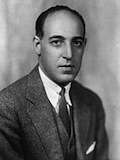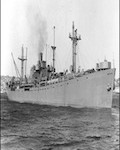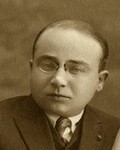U.S. diplomat Laurence Steinhardt (1892-1950) helped impede the immigration of East European Jews to America in 1940-1941, although he later helped facilitate the escape of Jewish refugees from Hitler Europe via Turkey.
The son of wealthy German Jewish immigrants, Steinhardt rose to become the highest-ranking Jewish officer in the U.S. foreign service, serving as ambassador to Sweden from 1933 to 1939, the Soviet Union from 1939 to 1941, and Turkey from 1942 to 1945.
During his years in Moscow, Steinhardt strongly objected to the inclusion of Polish rabbis and Zionist activists in the Roosevelt administration’s emergency visa program for endangered European labor union leaders, artists, and intellectuals. In cables to Assistant Secretary of State Breckinridge Long in 1940, Steinhardt derided “the alleged rabbis who have never had congregations outside of their own families,” and said that other Polish Jews applying for the visas should not qualify “unless a teacher of geography in a Kovno high school is to be regarded as a well-known intellectual and anyone performing manual labor is to be regarded as a labor leader.” He characterized the Zionist applicants as “professional political agitators.” In a meeting with Long in Washington in late 1941, Steinhardt reportedly described East European Jewish immigrants in general as unfit to become American citizens, saying they were “just the same as the criminal Jews who crowd our police court dockets in New York.”
Long used Steinhardt’s cables to convince President Franklin D. Roosevelt to tighten the restrictions on European Jewish visa applicants. One of Steinhardt’s cables was given to U.S. Senator Robert Reynolds of North Carolina, who was well known for his antisemitic views. Reynolds praised Steinhardt and read the cable aloud on the floor of the senate, in the hope of garnering support for his proposal to halt all immigration to the United States for ten years.
During his first years in Ankara, Steinhardt showed little interest in efforts by Jewish activists to help refugees escape from the Balkans via Turkey. Moreover, in the summer of 1943, Steinhardt urged the State Department to refrain from sending any more Jewish diplomats to Turkey. Steinhardt also tried to persuade the New York Times, Newsweek, and CBS to refrain from sending Jewish correspondents to Turkey in 1943.
The following year, however, Steinhardt in several instances pressured the Turkish authorities to permit Jewish refugees to cross through Turkey on their way to Palestine. This may have been the result of Steinhardt’s embarrassment over an October 1943 expose in the New York City newspaper PM, by investigative journalist I.F. Stone, quoting Steinhardt’s anti-immigrant cables from 1940. Or it could be that Steinhardt’s objections to East European Jews extended to the possibility of them immigrating to America, while he had no problem with them settling in Palestine.
Sources: Wyman, The Abandonment of the Jews, pp.216-217; Penkower, The Jews Were Expendable, pp.163-165.











